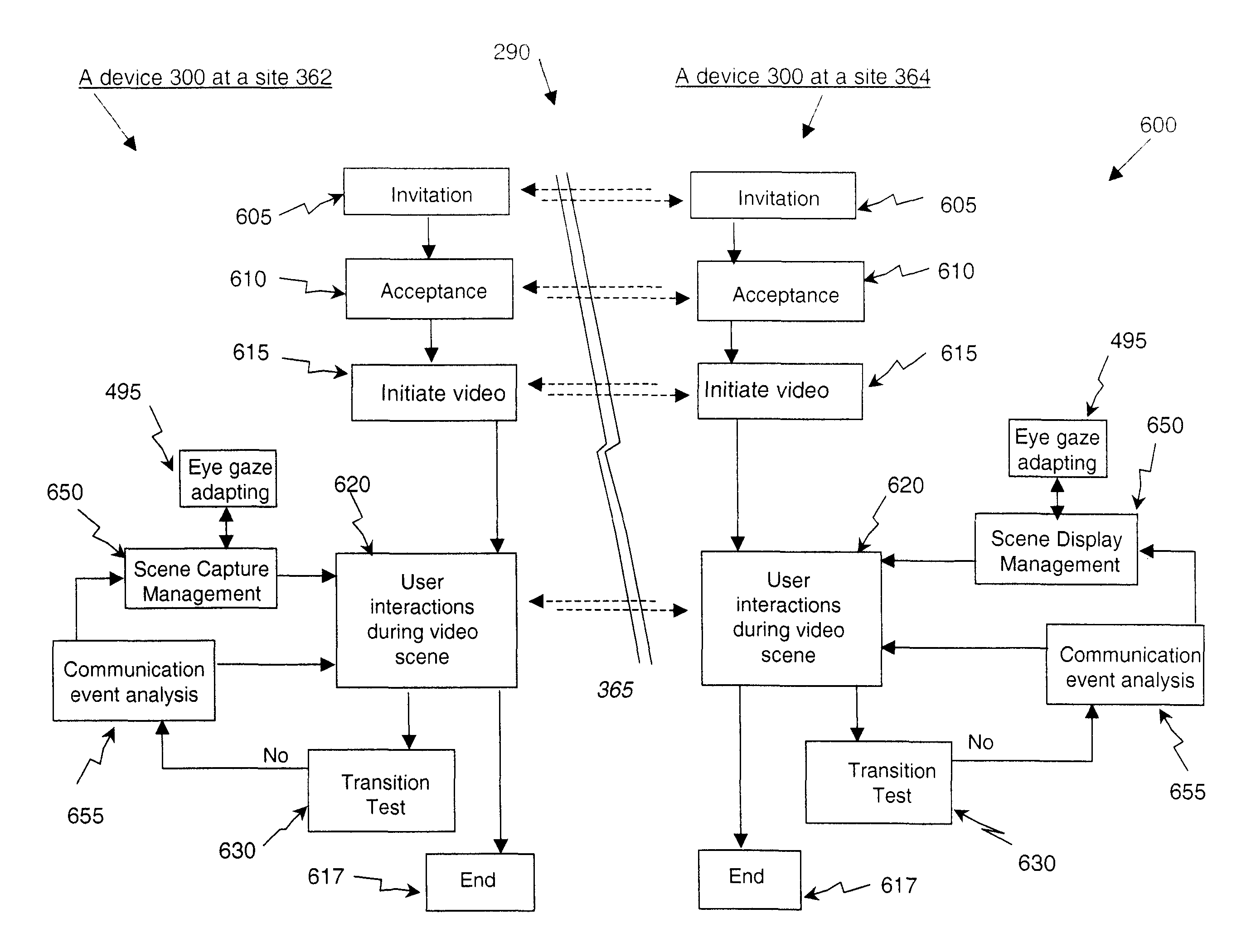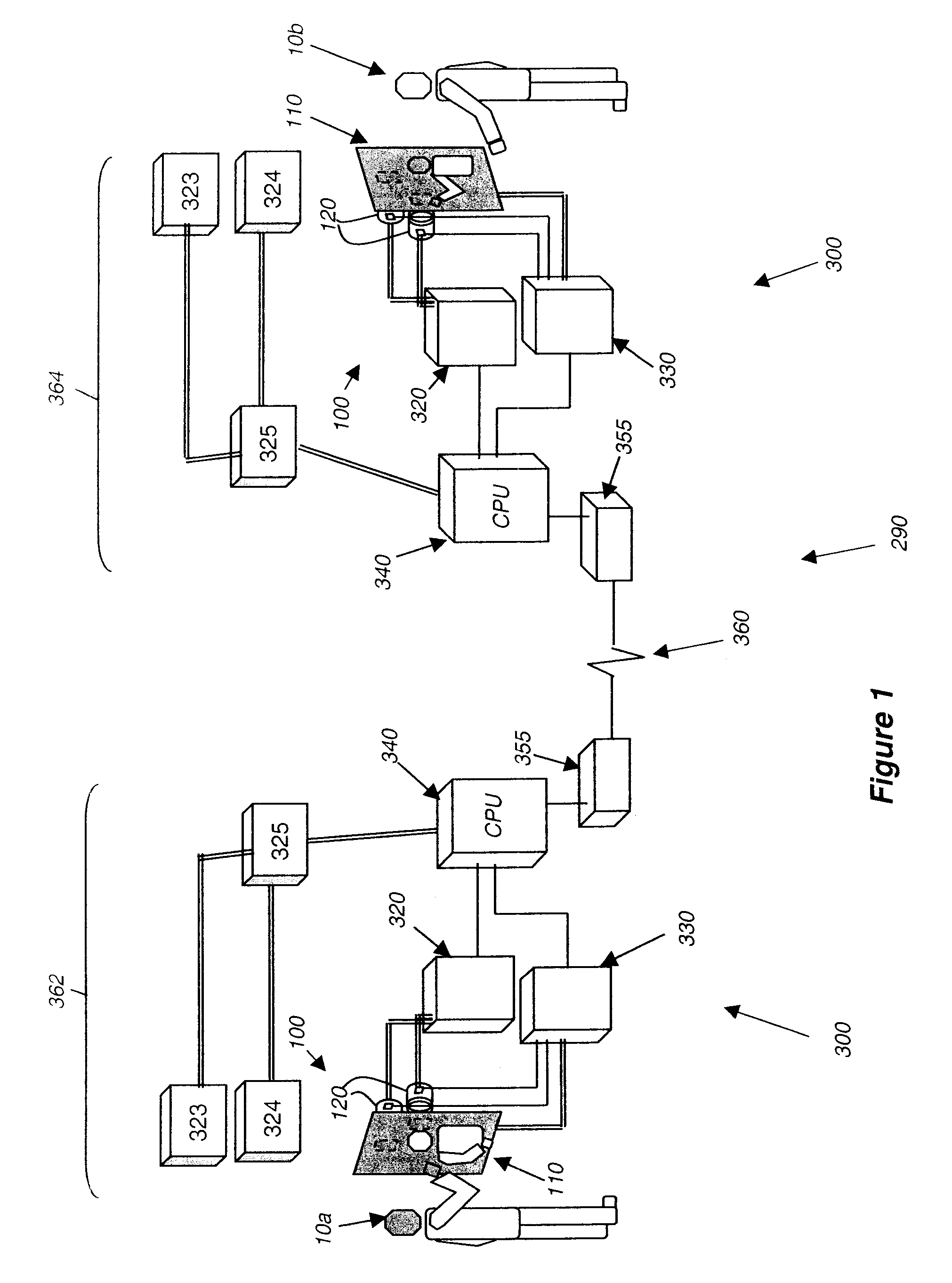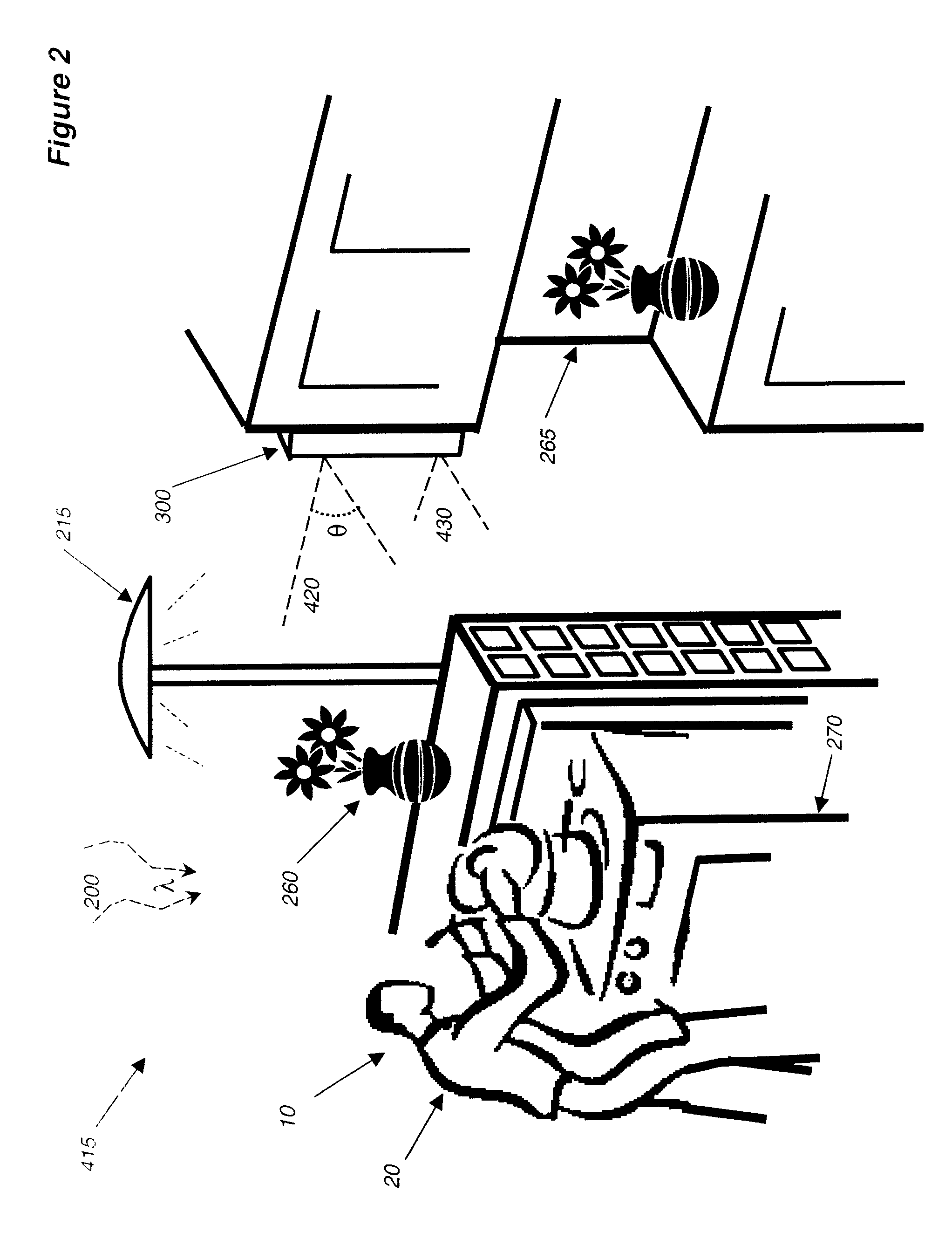Residential video communication system
a video communication and resident technology, applied in the field of communication systems, can solve the problems of limited appeal, lack of color imaging, and limited commercial success of picturephones, and achieve the effect of reducing the communicative impact of video communication events
- Summary
- Abstract
- Description
- Claims
- Application Information
AI Technical Summary
Benefits of technology
Problems solved by technology
Method used
Image
Examples
Embodiment Construction
[0036]The quality of video teleconferencing or video telephony is loosely described today by the term “telepresence”, which has been defined as the experience or impression of being present at a location remote from one's own immediate environment. This term has been particularly applied to corporate teleconferencing, relative to enabling teams who cannot be together, work together. The video-conferencing systems that provide eye-contact life size images of the remote participants, with the remote background extracted, such that the remote participants appear as if they are in the local environment, are perhaps an idealized implementation of a telepresence system. However, in some sense, the telepresence concept is a misnomer, as the various controls and tools, including camera zoom, can create an artificial experience, which is in some respects equivalent to “better than being there”.
[0037]While the telepresence concept may be useful for residential video-telephony, it is not neces...
PUM
 Login to View More
Login to View More Abstract
Description
Claims
Application Information
 Login to View More
Login to View More - R&D
- Intellectual Property
- Life Sciences
- Materials
- Tech Scout
- Unparalleled Data Quality
- Higher Quality Content
- 60% Fewer Hallucinations
Browse by: Latest US Patents, China's latest patents, Technical Efficacy Thesaurus, Application Domain, Technology Topic, Popular Technical Reports.
© 2025 PatSnap. All rights reserved.Legal|Privacy policy|Modern Slavery Act Transparency Statement|Sitemap|About US| Contact US: help@patsnap.com



